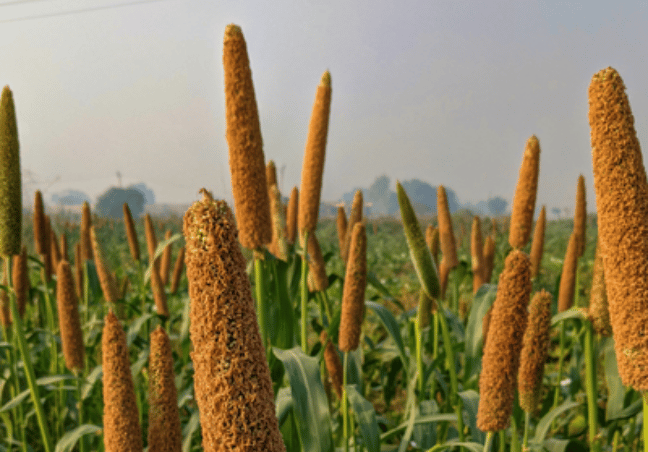Stakeholders in the healthcare and energy sectors have agreed to collaborate to power more rural hospitals in Africa with renewable energy. This decision, aimed at improving healthcare delivery and access, was made during the Energizing Healthcare 2025 conference, held in Nairobi.
The two-day conference was organised by Kenya's Ministries of Health and Energy, the World Health Organization (WHO), and Sustainable Energy for All (SEforALL). It addressed the energy gaps that hinder medical services across the continent.
Discussions centred on decentralising solar systems to provide reliable, climate-resilient, and cost-effective energy solutions for off-grid health facilities, especially in remote areas.
Our take: Africa can learn from countries in West Africa, such as Togo and Nigeria, which have already made significant investments in solar energy for rural hospitals… Read more (2 min)
Crop scientists have reinforced the focus on previously neglected indigenous crops in a move to improve nutrition in Africa. The African Orphan Crops Consortium (AOCC) and partners are in the process of sequencing the genomes of understudied crops and training African scientists in plant breeding.
These crops are recognised for their ability to enhance nutrition and withstand extreme weather conditions, making them essential in addressing food insecurity and climate adaptation in Africa.
In 2023, the U.S. Department of State, African Union, FAO, and global institutions launched VACS, a $200 million initiative advancing research on traditional crops and soil restoration, especially for Africa.
Our take: Unlike maize, which has received attention in Africa since the 15th century, several of Africa's indigenous crops like cassava, sorghum, millet are more suited to the continent's varied climates and attention to them will increase food security…Read more (2 min)
A recent review published in Nature has clearly outlined the direct and indirect ways in which climate change increases the incidence of urological diseases in Africa, as well as the carbon footprint of urological treatments on the environment.
First-order effects include heat-induced dehydration, increasing the risk of kidney stones and renal disease. Second-order effects involve climate-driven exposure to pollutants, contaminated air, and carcinogenic drinking water.
Third-order effects include healthcare access disruptions from climate disasters, infrastructure damage, and medical supply shortages. These factors collectively contribute to the rising incidence of urological diseases and cancers in Africa.
Our take: Research indicates that urology in Africa already faces challenges like limited specialists, inadequate equipment, poor access, high costs, and uneven healthcare distribution. Climate change is further deteriorating the patient outcomes…Read more (2 min)
____________________


A rural hospital in Togo using solar power to improve healthcare delivery services.
Events
🍇 France hosts Nutrition for Growth Conference (March 27,28)
Jobs
🩺 Doctors Without Borders seeks a climate & health communication project manager ](Côte d'Ivoire)
🧑⚕️ Climate Impact Partners seeks a Carbon Projects Technical Manager, Health & Livelihoods (Kenya)
⚡ Clinton Health Access Initiative seeks an Associate, Health & Schools Solar Electrification Associate, Health & Schools Solar Electrification
Various
💰 Global healthy foods market to reach USD 2,264.1 billion by 2035.
Seen on LinkedIn
Priscilla Wangila, a meteorologist from Kenya, says, “Climate change is not just an environmental issue; it’s a public health crisis. From extreme heat waves increasing risks of heat stroke and cardiovascular issues to the spread of diseases like malaria and dengue due to shifting weather patterns, climate hazards directly impact human health.”
____________________


